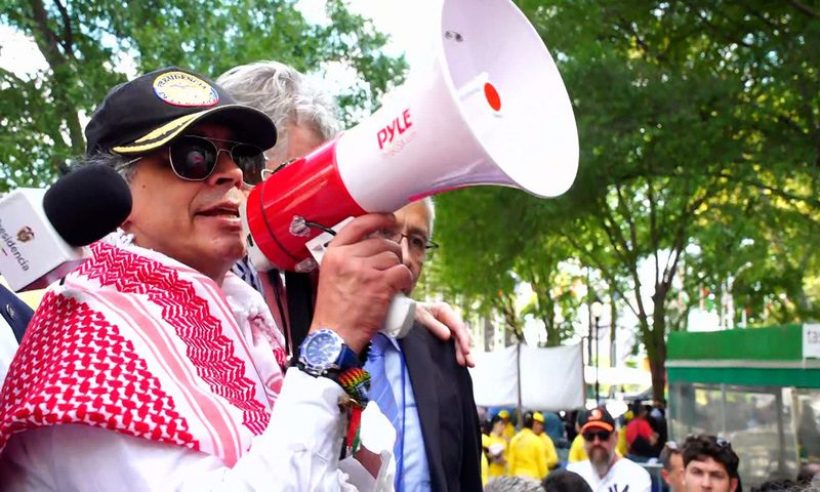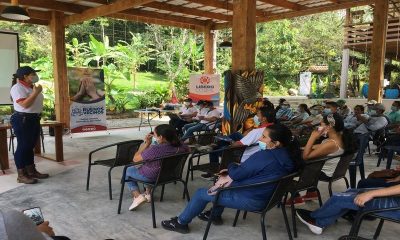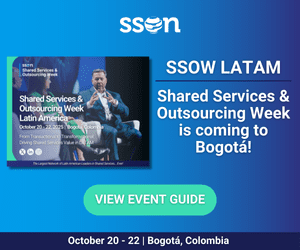Gustavo Petro Calls on US Military to Rebel, Gets US Visa Revoked
In an unprecedented series of events that have sent shockwaves through the decades-long alliance between the United States and Colombia, the US Department of State has revoked the visa of Colombian President Gustavo Petro. The decision follows what the department described as “reckless and incendiary actions” by the head of state on the streets of New York City, where he was attending the United Nations General Assembly.
While his country grapples with escalating violence and economic uncertainty, President Petro chose to immerse himself in foreign conflicts, taking his activism to a protest in Times Square against Israeli Prime Minister Benjamin Netanyahu. There, alongside Pink Floyd co-founder Roger Waters, Petro grabbed a megaphone and delivered a fiery speech. The critical moment came when he directly called upon members of the United States Armed Forces to “disobey the orders of Donald Trump and obey the order of humanity,” a move that Washington interpreted as a direct incitement to mutiny—a felony under US law.
The State Department’s response was swift and unambiguous. In a statement posted on X (formerly Twitter), the agency declared, “Earlier today, Colombian President Gustavo Petro stood on a New York street and exhorted US soldiers to disobey orders and incite violence. We will revoke Petro’s visa due to his reckless and incendiary actions.” The statement underscored a fundamental principle of international alliances: “No responsible ally encourages members of the US Armed Forces to disobey the constitution or break military discipline.”
This diplomatic fallout is not merely a reaction to a single speech but the culmination of escalating tensions. The relationship between the Petro administration and Washington has been strained by disagreements over anti-drug policy, the ongoing crisis in Venezuela, and now, Petro’s vociferous stance on the Israeli-Palestinian conflict. The US recently “decertified” Colombia as a partner in counter-narcotics efforts, a symbolic but significant rebuke of Petro’s strategies, which have coincided with a surge in illicit coca cultivation.
President Petro has consistently framed US policy as “hypocritical” and “imperial,” using platforms like the UN General Assembly to lambast the United States for what he calls a “failed” war on drugs. His rhetoric has grown increasingly confrontational, accusing Washington of “pushing the world toward new wars.”
Domestic Backlash and Political Condemnation
The repercussions of Petro’s actions in New York have been felt acutely within Colombia, drawing sharp criticism from across the political spectrum. Opponents argue that the president has recklessly endangered a critical strategic partnership for the sake of ideological posturing on a global stage.
Federico “Fico” Gutiérrez, the two-time mayor of Medellín, laid the blame squarely on the president. In a post on X, Gutiérrez stated, “Petro has done everything to destroy Colombia’s relationship with the United States. It has been a premeditated strategy of provocation. I evidenced it in our agenda in Washington. Now don’t play the victim. The horrible night will soon cease. Petro is not Colombia. The United States is clear about that. Colombia needs a President who governs with his five senses and in his five senses. Colombia will get ahead.”
Similarly, former governor of Antioquia Sergio Fajardo called for Petro’s resignation, expressing his dismay on social media. “You finally did it, President Petro! You no longer have a visa for the United States. Now resign from the presidency and dedicate yourself to leading the third world war against Trump and his friends,” Fajardo wrote. He added, “He was not capable of thinking about his responsibility to Colombia or of protecting our country’s interests. He stopped governing a long time ago and will now go out to do politics as the victim he has always wanted to be. What an embarrassment, Mr. President!”
In response, Petro dismissed Fajardo’s criticism, retorting that “being president of Colombia does not depend on the US, it depends on the people. Understand that the people are sovereign.”
A Symbolic Strike with Historical Echoes
The revocation of a sitting president’s visa is a severe diplomatic rebuke. While it does not prevent President Petro from attending multilateral forums like the UN, it is a potent symbol of disapproval. The last time the US took such a drastic measure against a Colombian leader was in 1996, when President Ernesto Samper’s visa was revoked by the Clinton administration over substantial evidence that his presidential campaign had received funding from the Cali drug cartel.
Upon his return to Bogotá, Petro confirmed he had been notified of the visa cancellation, framing the US government’s decision as a violation of international law and the diplomatic immunity afforded to heads of state attending UN functions. “Separating the US from Colombia is what the mafias need,” he wrote on X, warning, “The headquarters of the United Nations cannot continue in New York.”
The protest in New York, which drew approximately 2,000 people, was organized by a coalition of groups including the Palestinian Youth Movement, Jewish Voice for Peace, and the Party for Socialism and Liberation. The Colombian delegation accompanying the president was also present, and they notably walked out of the UN General Assembly during Prime Minister Netanyahu’s address.
As President Petro pivots to domestic rallies, the long-term consequences of his diplomatic gamble remain to be seen. What is clear is that his actions have pushed the vital US-Colombia relationship into its most precarious state in a generation, prioritizing a crusade on foreign disputes over the stability of a cornerstone alliance.
President Gustavo Petro in New York, joining a rally for Palestine. Photo credit: Colombian Presidency.




























